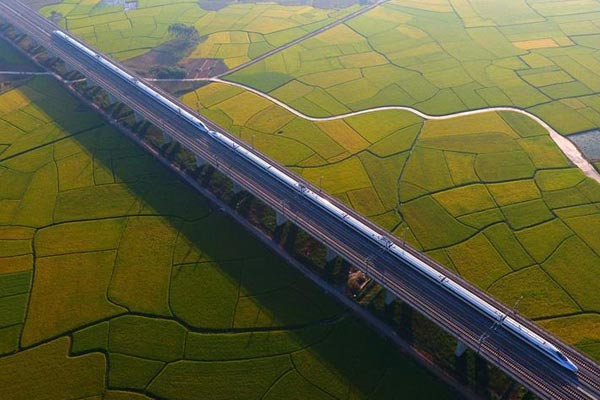Real estate recovery gathering steam
China's real-estate recovery is gathering steam.
Developers' expansion appetite is returning and land purchases are up. Governments have responded in turn by providing more land. Land prices have bottomed out and now look set to rise moderately in the next three months. Construction activity is set to pick up.
Meanwhile, apartment sales are rising in many cities on the back of strong demand, price cuts and a shift in sentiment. Developers expect home sales to be even better this year than last, mainly supported by real demand in bigger cities. The destocking of apartment inventories continues, although the pace varies across cities. Inventories are, however, a problem in some smaller cities, where sales have not recovered as quickly.
We expect prices in first-tier cities to continue to rise, but the situation in second and third-tier cities will vary. Some lower-tier cities appear woefully over-built and have seen, or will see, significant price corrections. However, the overall price situation appears stable, with developers expecting apartment prices to rise modestly by less than 10 percent this year.
Financing conditions for developers remain constrained, especially for smaller companies. Funding costs have not fallen significantly, and it does not appear to be easier to get a bank loan. Cash positions haven't seen any obvious improvement and sales revenues remain the key. We do not expect major developers to deleverage in 2013 given their large project development needs and robust expansion appetite, but small developers are under greater stress.
Listed developers continue to gain market share, and they enjoyed easier financing, bought more land and delivered more sales in 2012.
The majority of developers expect the central government's policies to remain unchanged, while counting on easier financing conditions and more flexibility in local policy implementation. In fact, the central government is unlikely to further tighten policies across the board for the sector. Tightening measures, if any, may only be in first-tier cities, such as Beijing, where property prices have remained relatively strong.
We expect house prices in first-tier cities to continue their upward momentum - Beijing apartment prices appear to be up at least 10 percent year-on-year; more in some neighborhoods. Prices in Shanghai, Shenzhen and Guangzhou have firmed somewhat. The situation in second-and third-tier cities will vary. Some cities - such as Wenzhou, Zhejiang province, Haikou and other areas outside Sanya in Hainan province and Guiyang, Guizhou province - appear woefully overbuilt and have seen, or are due, significant price corrections. However, the overall price situation appears stable, with a modest upward momentum this year.
On the policy front, government controls remain in place. The official announcement by the State Council, China's cabinet, meeting on Feb 20 signals that leaders are still concerned about the rapidly rising home prices.
We see continuing risks in China's property market and believe the country's newly elected leadership will be proactive in implementing existing policies to control the property market, and may seek to introduce new cooling measures if upside risks intensify in certain cities or regions. But the government may tolerate a pickup in the sector as long as price increases remain in line with underlying fundamentals.
That said, continuing policy pressure should ensure that any upward pressure on home prices is kept in check.
The author is an economist at Standard Chartered Bank.

















